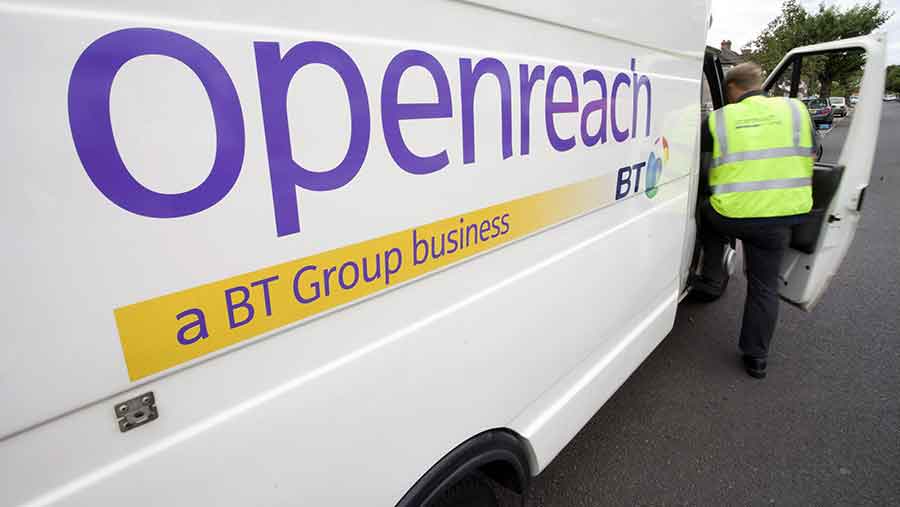Ofcom broadband decision offers hope for farmers
 © Rex/Shutterstock
© Rex/Shutterstock Separation of BT’s broadband infrastructure operation could benefit rural businesses, but will need a wave of investment say farming groups.
This follows Ofcom’s decision to legally separate Openreach from the BT group into its own distinct company and to open up their network to competitors offering consumers more choice.
Openreach, which runs and operates the cable and telecoms infrastructure for more than 30 million customers in the UK, will now be able to deliver better broadband speeds to homes and businesses in the biggest shake-up in the company’s 10-year history.
See also: UK rural broadband ‘worse than ex-Soviet bloc’
The structural changes must now spark a wave of investment, according to Country Land & Business Association president Ross Murray:
“Rural communities deserve better broadband… too many places still receive poor or non-existent service and Openreach must do better.”
“We strongly support the requirement for Openreach to make it easier for competitors to identify and use their network of underground ducts and poles to place new fibre optic cables that connect homes and businesses to superfast internet speeds.”
Mr Murray added: “We have to start now delivering the types of connections that will make it seamlessly possible for anyone to run their home and business fully integrated to the rest of the world from the heart of the English and Welsh countryside.”
Farmer experience of slow speeds
Farmer Emma Milligan-Manby from Thorganby, Grimsby, Lincolnshire, has diversified into a guesthouse business and says customers cannot believe how bad broadband speeds are.
With average download speeds of just 1.2mbps at peak times, Mrs Milligan-Manby’s speeds are just a fraction of the national average of 54.2mpbs, if they work at all.
“We were promised faster speeds by July 2015 and we have been completely misled. If I can’t read emails I will inevitably lose out on business.”
The Ofcom announcement was welcomed by Mrs Milligan-Manby, who said even a modest increase in speeds would be like “flying to the moon” and would be “absolutely life changing”, but remains cautious as she’s heard the empty promises of improvements before.
In 2015 the government proposed a minimum broadband speed of 10mbps to be introduced by describing it as a legal right to a “fast internet connection”, following the lead from countries such as Finland who already have a minimum requirement.
